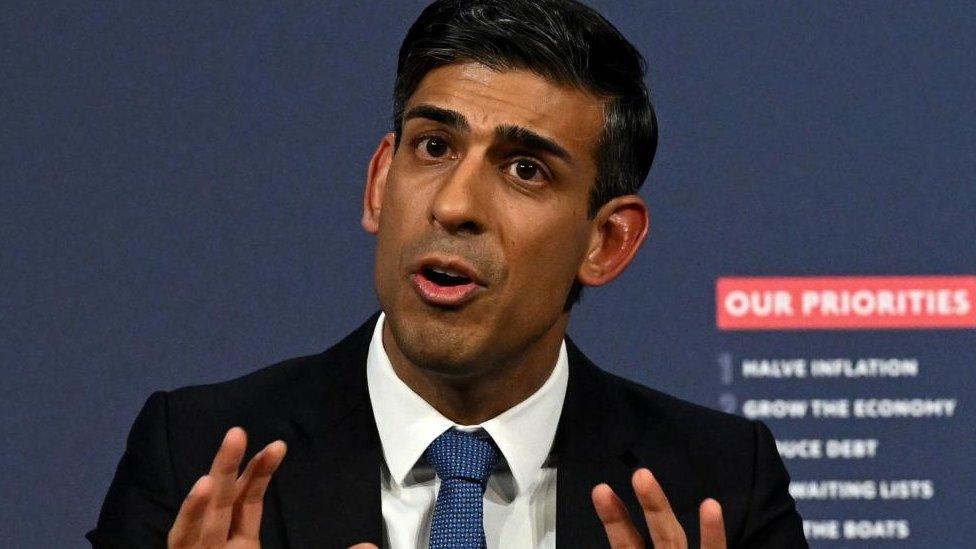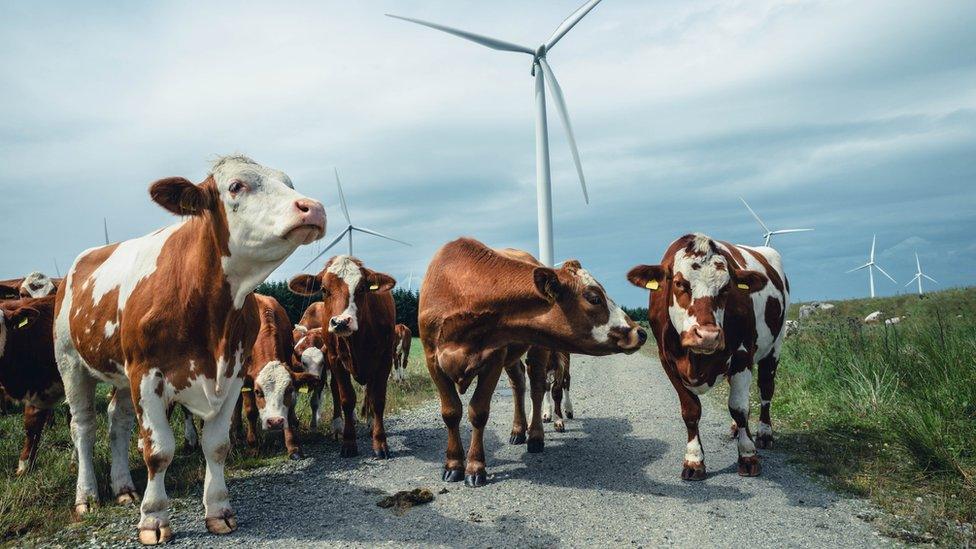Rishi Sunak: I care about reaching net zero carbon emissions
- Published
- comments
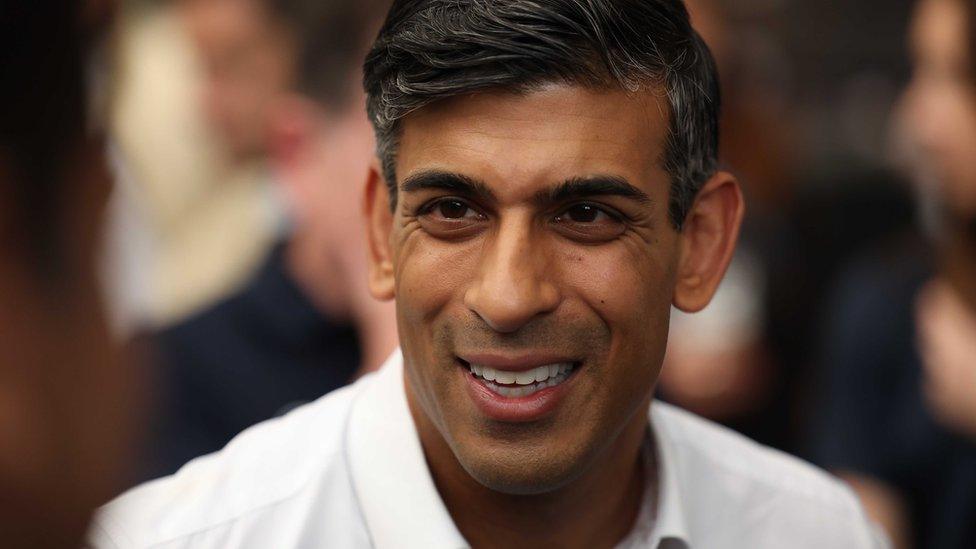
Rishi Sunak has insisted he cares about reaching net zero but that the 2050 target needs to be achieved in "a proportionate and pragmatic way".
The prime minister has faced criticism from environmental groups and some of his own MPs that he is not committed to tackling climate change.
Mr Sunak told LBC he wanted to leave the environment in "a better state than we found it in" for his two daughters.
But he added that the UK would still need fossil fuels in the future.
Asked if he was confident he could win over his environmentally conscious daughters, Mr Sunak said they were not "eco-zealots" and like most people, were "open to sensible, practical arguments".
He has previously described his daughters as "passionate environmentalists", who have often asked him what he is doing about climate change.
Mr Sunak is facing pressure from some Conservative MPs to review the government's green policies, after the party's surprise win in the Uxbridge by-election, when it capitalised on anger over London's Ultra Low Emissions Zone (Ulez).
However, he has said the government is committed to reaching net zero by 2050 - which means no longer adding to the total amount of greenhouse gases in the atmosphere, which are increasing global temperatures.
Domestic flights
Other leading climate campaigners in the Conservative Party have criticised Mr Sunak's commitment to environmental issues.
Lord Goldsmith recently resigned from the government, accusing the prime minister of "apathy" over climate change.
The prime minister has also attracted criticism for the number of domestic flights he has taken to travel for government business across the UK.
Earlier this week he defended flying to Scotland, to announce support for a carbon capture project, as "an efficient use of time for the person running the country".
"If your approach to climate change is to say that no one should go on holiday, no one should go on a plane, I think you are completely and utterly wrong," he told BBC's Good Morning Scotland.
In his interview with LBC he also revealed he was taking his family on a summer holiday to California this week, including a visit to Disneyland.
The prime minister is due to head on a family holiday this Thursday
Mr Sunak has announced the government is granting 100 new North Sea oil and gas licences, as well as supporting a carbon capture project in the north east of Scotland.
The decision was criticised by environmental campaigners, who said it would "send a wrecking ball through the UK's climate commitments".
Conservative MP Chris Skidmore said the move was "the wrong decision at precisely the wrong time" and "on the wrong side of history".
However, Mr Sunak said: "I 100% believe that what I'm doing is right," adding that even after meeting the 2050 target the UK would still need fossil fuels.
He argued it was "sensible" to use "the energy we have here at home", as this would be better for jobs and avoid the environmental cost of shipping energy from abroad, as well as reducing the UK's reliance on other countries.
Electric cars
Meanwhile, Energy Security Secretary Grant Shapps is meeting oil and gas bosses in Downing Street to talk about the government's decision to invest in home-grown energy sources, including renewables and North Sea oil and gas.
Mr Sunak is also facing pressure over measures to move towards electric cars.
Business Secretary Kemi Badenoch is understood to have raised concerns about rules due to come into effect next year that require car manufacturers to sell a certain proportion of electric models.
From January, 22% of vehicles sold have to be zero emission, or car makers could be hit with fines.
Some manufacturers have been calling for a softening of the rules, and as first reported by the Politico website, external, Ms Badenoch has passed on their concerns to her cabinet colleagues.
But Labour said the sector was "crying out for certainty" and Ms Badenoch's reported comments were a "threat to investment".
Ministers have insisted the government remains committed to banning the sale of new petrol and diesel cars by 2030, despite calls from some Tory MPs for a delay.
Related topics
- Published31 July 2023
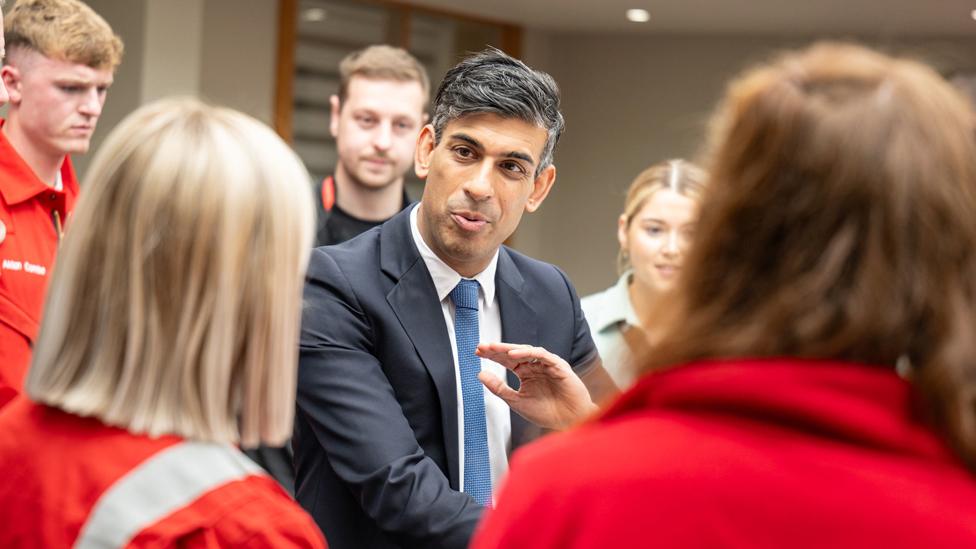
- Published28 July 2023
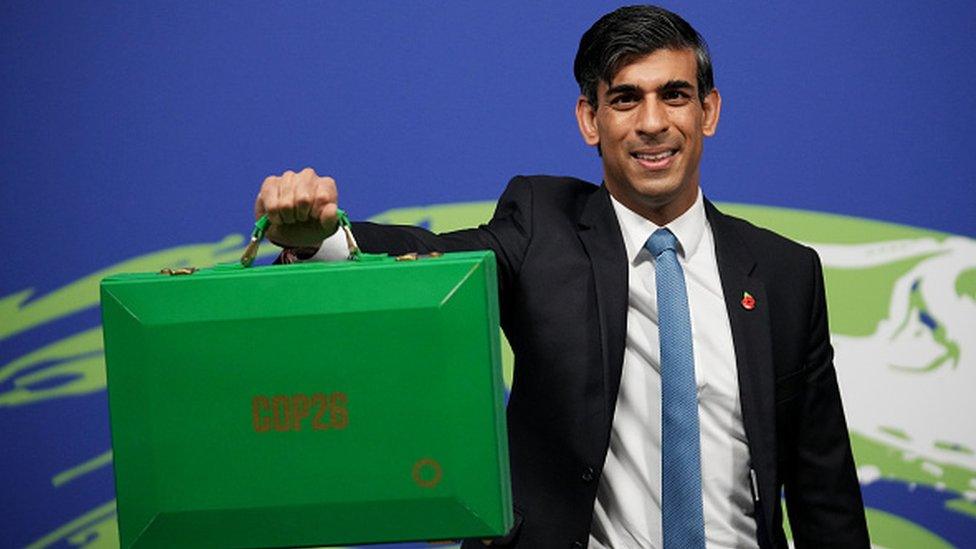
- Published29 July 2023
